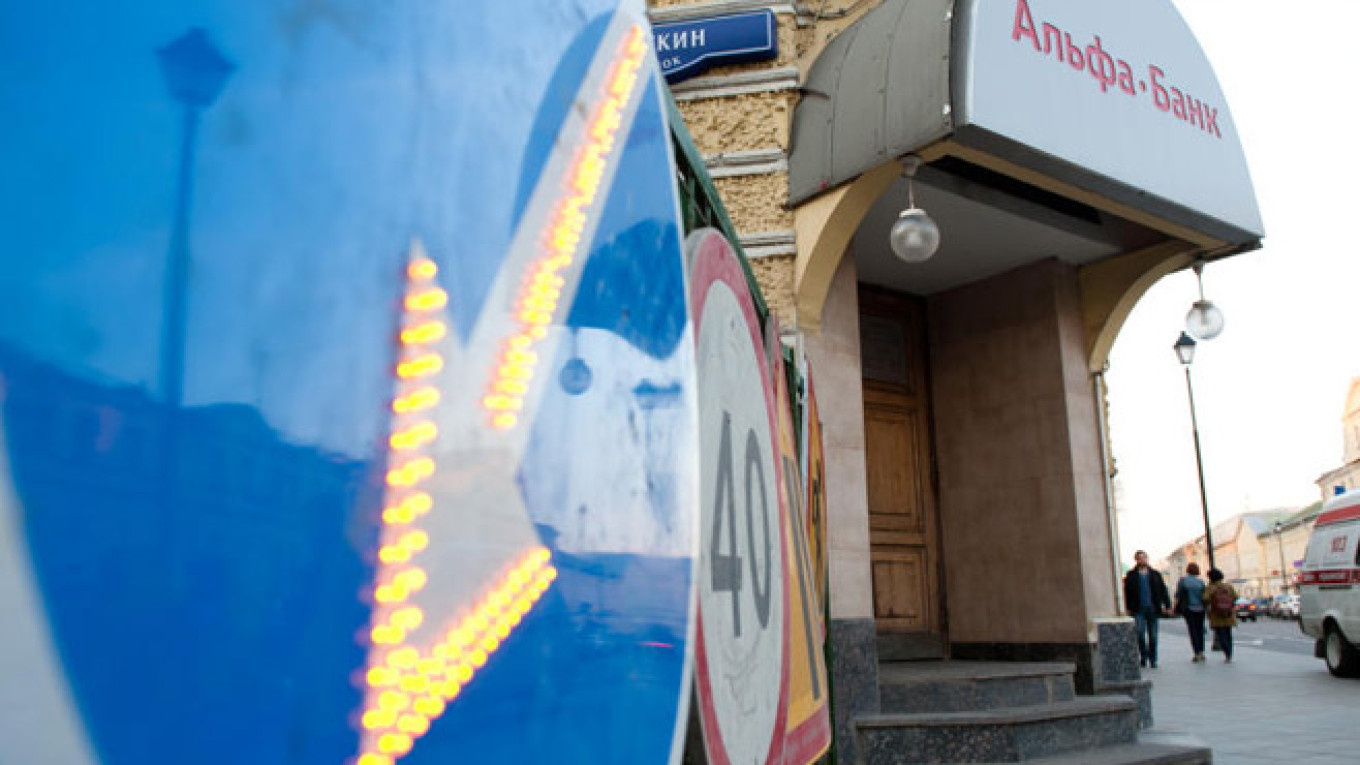Russians' trust in banks has fallen sharply over the past year, as a currency crisis and Western sanctions shook the country's financial system, a poll by the National Agency of Financial Research (NACFIN) showed.
Fifty-six percent of respondents to the survey, conducted in April, said they either fully or mostly trusted banks, down from 74 percent a year earlier in 2014.
The decline comes after a year of economic turbulence, as Western sanctions over the crisis in Ukraine and falls in the price of oil, Russia's main export, stalled economic growth and prompted a 40 percent devaluation of the ruble against the U.S. dollar over 2014.
The ruble's crash propelled inflation to more than 16 percent in March this year and forced Russia's Central Bank to briefly raise its key interest rate to 17 percent. Thousands of Russians who had taken out mortgages denominated in foreign currency saw the cost of repayments skyrocket and pleaded to President Vladimir Putin to bail them out, claiming they had become "slaves" to banks.
Irina Lobanova, head of NACFIN's banking sector research department, told news agency RBC: "The population largely blames government agencies that failed to protect them. People do not believe that they can talk with banks on an equal footing. They think they need the state as a supervisor, and that is the most striking sign of loss of confidence in the long haul."
Many Russian banks suffered an outflow of deposits last year as Russians withdrew money and rushed to buy real estate, cars and consumer electronics that would retain their value better than the ruble. Many opted to lock up dollars in safe deposit boxes as the ruble fell.
But despite growing distrust, a partial recovery in the ruble's value this year has seen money flow back to banks. In April ruble deposits increased by 3 percent and foreign currency deposits by 4.3 percent, the Interfax news agency quoted deputy Central Bank chairman Mikhail Sukhov as saying earlier this month.
The NACFIN survey, which was published Monday, polled 1,600 people in 46 Russian regions. The margin of error did not exceed 3.4 percent.
A Message from The Moscow Times:
Dear readers,
We are facing unprecedented challenges. Russia's Prosecutor General's Office has designated The Moscow Times as an "undesirable" organization, criminalizing our work and putting our staff at risk of prosecution. This follows our earlier unjust labeling as a "foreign agent."
These actions are direct attempts to silence independent journalism in Russia. The authorities claim our work "discredits the decisions of the Russian leadership." We see things differently: we strive to provide accurate, unbiased reporting on Russia.
We, the journalists of The Moscow Times, refuse to be silenced. But to continue our work, we need your help.
Your support, no matter how small, makes a world of difference. If you can, please support us monthly starting from just $2. It's quick to set up, and every contribution makes a significant impact.
By supporting The Moscow Times, you're defending open, independent journalism in the face of repression. Thank you for standing with us.
Remind me later.


